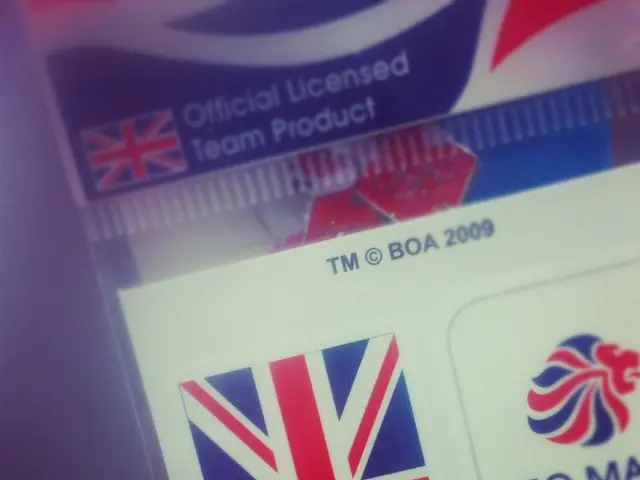Groundbreaking Hydrogen Bus Model, NesoBus, Introduced in Wrocław: Pledges to Improve Air Quality
A New Era of Energy-Efficient Transportation
Hop aboard the environmental revolution with Wrocław's brand-new hydrogen-powered bus, the NesoBus! Dubbed the "No Emissions and Cleans" bus, this zero-emission vehicle is set to redefine eco-friendly commuting. Ready for a green ride? You've got a month to hop on!
NesoBus isn't just a buzzword; it's an investment in the future. its hydrogen-powered engine consumes a mere 8 kg of hydrogen per 100 km, boasting a fuel capacity of 37.5 kg, enough for around 450 km on a single fill. Accommodating up to 93 passengers, including 37 seated, this green behemoth promises a comfortable, energy-efficient, and spacious ride.
Not one to disappoint the modern traveler, NesoBus also comes equipped with essential amenities like wireless smartphone charging and a customizable driver's cabin. The enhances the overall driving experience.
The Future is Now
Manufactured by PAK-PCE Polski Autobus Wodorowy—a joint venture by Grupa Polsat Plus and ZE PAK—NesoBus represents a significant leap forward in clean public transportation. This visionary vehicle harnesses hydrogen fuel cell technology to generate electricity, producing only water and steam as waste products.
Poland's progressive stance on sustainable transport is evident with the operational NESO hydrogen refueling stations in Warsaw and Rybnik, and plans for expansion in cities like Gdynia, Gdańsk, Lublin, and Wrocław. The stations cater to both buses and private vehicles, ensuring a seamless transition to hydrogen fuel for commuters.
A Glimpse into the Future
NesoBus' debut in Wrocław is a bold step towards sustainable urban mobility. By embracing hydrogen fuel cell technology, the NesoBus project aims to minimize the environmental impact of public transport and contribute to the growing demand for cleaner, renewable energy sources.
With successful trials in multiple cities, including Gdynia, Warsaw, Rybnik, and Szczecin, NesoBus paves the way towards broader adoption of hydrogen-powered transport across Poland. In 2024, Wrocław joins cities like Chełm, Sosnowiec, and Gdańsk in testing NesoBus, signaling a brighter, greener future for commuting.
If you're ready to ride the wave of environmental change, sign up for our weekly roundup of news from Poland! Stay in the loop on sustainable initiatives and more, delivered to your inbox every Saturday.
[1] While the search results don't explicitly detail future plans for expanding NesoBus hydrogen refueling stations, they hint towards broader technological advancements by Grupa Polsat Plus, such as 5G services.]
We don't spam, promise!
Check your inbox or spam folder to confirm your subscription.
- As the environmental revolution marches on, we encourage everyone to consider the benefits of energy-efficient transportation like the revolutionary NesoBus.
- In aligning with the technological advancements of the 21st century, NesoBus boasts wireless smartphone charging, ensuring a modern, comfortable travel experience for passengers.
- As the shift towards sustainable transportation continues in Poland, expect to see more hydrogen-powered vehicles like NesoBus emerging in cities such as Gdynia, Gdańsk, Lublin, and Chełm.
- Ushering in a new age of clean public transportation, NesoBus is not merely a bus; it's a symbol of the collaboration between the environmental-science sector, the industry, and finance sectors working together for a better future.
- The service industry also stands to benefit from the promotion of eco-friendly transportation through innovative vehicles like NesoBus, which could spur economic development and job creation.
- By investing in technology like hydrogen fuel cell systems, smart transportation infrastructure like wireless charging stations, and AI-based management systems, we can move towards a cleaner, greener, and more efficient future.
- The exploration of space offers exciting opportunities for further advancement in energy-efficient transportation, as studies in low-gravity environments may lead to breakthroughs in materials science, propulsion systems, and battery technologies.
- As we strive for a cleaner, more energy-efficient transportation system, it's essential to consider the long-term implications of our choices on factors like war and peace, as energy scarcity and environmental degradation can potentially lead to conflict.
- By staying informed about the latest news and developments in environmental science, technology, and sustainable initiatives like NesoBus, you play an active role in shaping the future of our planet and promoting a better, cleaner, and more energy-efficient world.








